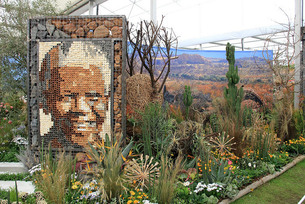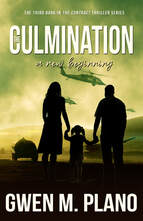 Photo by Jens Schott Knudsen
Photo by Jens Schott Knudsen Years ago, when I taught at Friends World College (now called Global College and part of Long Island University), I was asked to visit a Hasidic Jewish community in Montreal, Canada, where students were earning a degree through our college via mail. This was an interesting opportunity for me, for I had little knowledge of this community’s practices.
A man with a long dark beard and side curls, black suit and hat met me at the airport. He was polite though formal. As we walked through the airport corridor, I was unnerved by the stares and unspoken judgments of people passing us, but he seemed oblivious. Looking straight ahead, he walked quickly through the crowds to the chauffeured car.
Women with head coverings and long dresses greeted me when I arrived at the community. They quickly offered freshly baked challah bread and something to drink. They were cordial and kindly. One asked me which community I belonged to, and I awkwardly responded that I was from Long Island. She nodded and knew I was not one of their religious family.
While speaking with the women about their studies, I glanced out the window and saw a few men, pale and bearded and similarly dressed as my escort, pacing in the yard while praying with a small book. They seemed unaware of anything other than their prayers. A separate world for sure.
I naively asked the students if they had read An Interrupted Life, by Ettie Hillisum, and my escort explained that all books needed to be approved by the leadership, and this book had not yet been. Their reading list was constricted by custom and religion. I asked about newspapers and was told that a weekly summary of events was provided but nothing more.
“But, how will you know if something important happens today?” I asked.
“What difference will it make if we know today or in a week?” He grinned. “There is nothing we can do about it anyway.”
On the ride back to the airport, I thought about the women and their lives, the men and their prayers, the community apart from the world. This had been a journey like none other I had taken.
My escort accompanied me into the airport. The flight was delayed, so we sat across from each other at a table. Again, I was quite aware of the apparent hostility of those around us, and I felt uncomfortable sitting with this gentleman. Small talk ensued, and I asked about the men saying prayers in the courtyard, and he explained their practice and added that women did not do the same.
“Are you suggesting that women cannot directly experience God?” I asked.
He stared at me for a moment, smiled and then said, “Clearly, that is not the case.”
And so the day ended—with a simple gesture of recognition.
Isn't that what we all seek in our interactions? Some sign that the other person or persons hear us, understand us, value our experience?
Ferguson, Iraq, Gaza….. what would “recognition” mean in these circumstances?

If you talk to a man in a language he understands, that goes to his head. If you talk to him in his language, that goes to his heart.
"His language"...the language spoken in his heart... There is where we need to meet.







 RSS Feed
RSS Feed